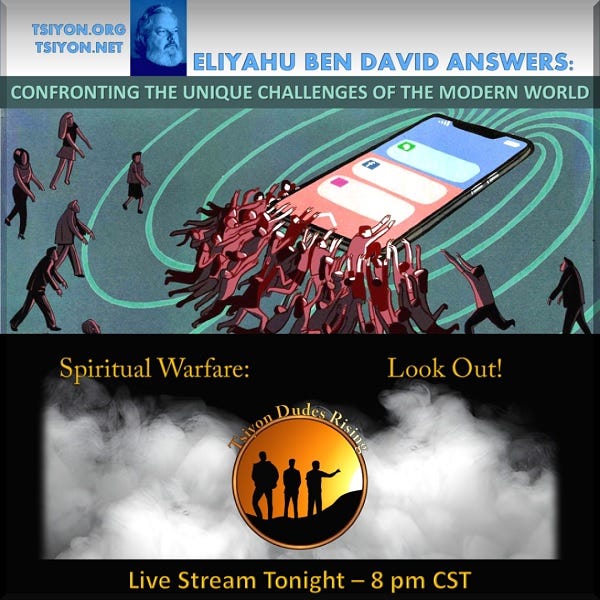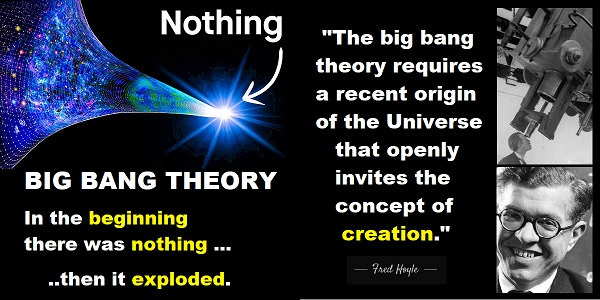TSIYON NEWS - 21st century problems
Tsiyon Messianic Radio Newsletter - Vol 20.27 - 04/21/6025 TAM - 07/16/2025 AD
From Eliyahu
One thing I’m really enjoying about my life is having a number of 20-somethings around me that I get to be with every single day. Thankfully, even though I’m what many young people sometimes refer to as a “boomer” (baby boomer generation) we are able to enjoyably communicate across generational lines. I learn a lot from them about the unique problems many young people are facing today. I am going to review a few of these, not to put anyone down, but to acknowledge what our younger generation is dealing with - and – to observe and recommend what these young people around me have to offer their generation.
Here are some facts: despite digital connectedness, 61% of 18- to 25-year-olds report feeling lonely. The shift from face-to-face to online interactions undermines deep friendships and community support. Loneliness correlates with higher rates of depression, substance abuse, and overall distress. Young adults today report unprecedented levels of anxiety, depression, and self-harm. In England, 25.8% of 16- to 24-year-olds had a common mental health condition in 2023/4, nearly tripling rates of self-harm from 2007. In the U.S., 36% of 18- to 25-year-olds experienced anxiety and 29% reported depression - roughly double that of teens aged 14–17.
All indications are that these problems are becoming more rampant with each passing year. The modern job market’s volatility and gig economy create even more stress. Young adults face unpredictable hiring cycles, shifting skill demands, and fierce competition for entry-level roles. Many report feeling overwhelmed by career choices and underprepared for emerging fields. For many of these young folks the future looks pretty scary.
Young adults are dealing with all of this and much more while navigating the rigors of self-discovery common to the young. This is difficult amid constant digital comparison eroding confidence and clarity. Young adults juggle multiple online personas and endure pressure to conform to ever-changing social norms. This identity struggle contributes to anxiety, imposter syndrome, and difficulty committing to personal values. All of this makes personal relationships difficult to establish and maintain.
Young adults enjoy the use of amazing technology far more advanced than that of earlier generations, and yet, statistical records show their grandparents generally felt happier and more satisfied with life. To illustrate, I would like to share something from my past to contrast with how things are today.
In America of my boyhood nearly everyone believed in God. In school we said the Lord’s Prayer every morning, before we got into our school day. It’s been a long time since that happened, but back when it did happen it felt very positive for most students. Just having a sense that God is in control and that prayers are heard added to the sense of well-being among the students.
Today, if students in school want to pray they may be met with disapproval and resistance, perhaps as much from the system as from other students. As some students progress into college or university belief in God is even less welcome. Professors will scoff at faith, and humiliate the faithful. No wonder that the majority of young people from believing families abandon their faith when they leave home. For many, belief in God just isn’t considered ‘scientific’ so isn’t cool.
This isn’t true of all young people though. Those around me have literally found God for themselves, and in finding Him they have found empowerment, and good reason to be optimistic about the future. They have learned that God is indeed ‘scientific’ and is also very cool. One reason they feel that way is because they know what scientific observation is telling us now, in their generation, about God.
At one time (when I was in school) the prevailing theory of cosmology was the Steady State Theory, which postulated that the universe is eternal with no beginning. This was very convenient for atheists because the theory had no need to explain where the universe came from.
However, as science progressed things got more complicated. Observations of galactic redshift and the cosmic microwave background confirmed a definite origin of the universe, raising the question: What caused space, time, and matter to begin? This question prompted the Big Bang Theory, in which ‘nothing’ exploded and gave us the universe, which (let’s be honest) sounds more like myth than science.
I say ‘myth’ because the Big Bang is not proving out in the real world. The James Webb Telescope sees farther than humans have ever seen before, and what we are now seeing does not agree with the Big Bang assumptions. We should have known all along that you can’t get something out of nothing. This leaves us back where we started, looking for the beginning of the universe. A transcendent intelligent First Cause is looking far more plausible than something out of nothing ever was. Indeed, “everything that begins to exist has a cause”.
Advancements in science have given us reason to believe in intelligent design of the universe. Where there is design there must be a Designer. A major indication of this is the fine-tuning of the universe. Physicists have identified over two dozen fundamental constants - such as the strength of gravity, the cosmological constant, and the fine-structure constant - whose precise values permit atoms, stars, and life to exist. If any were tweaked even slightly, the universe would be sterile. This “Goldilocks universe” phenomenon suggests that our cosmos is not a random accident but possesses an intentional calibration far more plausibly explained by design than by dumb chance.
Quantum mechanics unveils non-classical order. Particles linked by entanglement, matter described by precise mathematical laws, and properties remaining undefined until measured. Meanwhile, the anthropic principle notes that the universe’s laws and constants appear finely balanced requiring observers. Imagine that! Observers (people) were planned into how the universe works! These facts reveal an ordering Mind that undergirds reality, rather than an accidental confluence of particles and forces.
The 1953 discovery of DNA’s double-helix revealed that life is underwritten by a digital code - a sequence of nucleotides remarkably akin to software, only far more sophisticated than any software written by man. The origin of such specified, functional information in biopolymers defies all naturalistic explanations. Beyond that, DNA is a self-replicating information system, so who ‘wrote’ the code in the first place? Obviously, an intelligent ‘Programmer’ must lie behind life’s inception.
Nobel laureate Arthur Compton argued that an orderly cosmos implies a divine origin. Philosopher Stephen Meyer contends that evidence such as fine-tuning, digital information in DNA, and much more, collectively point to a transcendent intelligence behind the universe’s blueprint. Even atheist physicists entertain the multiverse hypothesis - theorizing countless universes to give math better odds of producing even one finely-tuned universe - underscoring how compelling the fine-tuning evidence actually is.
Science studies the how of the cosmos - its origins, laws, and mechanisms - but its profound observations often circle back to the question of why. The fine-tuned constants, the digital code of life, and quantum coherence do more than fascinate; they require an intelligent Designer. While alternative models like the multiverse exist, the cumulative weight of these scientific revelations continues to drive reasonable people, including a growing number of scientists, toward belief in an intelligent Creator, seeing in the cosmos both precision and purpose.
It is interesting that the Bible points to scientific observation of the universe as proof of the Creator. It says:
“For ever since the creation of the universe his invisible qualities - both his eternal power and his divine nature - have been clearly seen, because they can be understood from what he has made.” This is science! (Romans 1:20 CJB)
Note from this that Biblical faith is not blind faith. On the contrary, Biblical faith is supported by reasonable observation of reality. If reality and the Bible are in agreement should we listen to what the Bible is telling us? Wouldn’t you expect that the One who created us has things He would like to say to us? He does! They are written in the Bible and they are things you can know in no other way.
Every person can improve their life by delving into the Bible and getting to know our Creator. Young people can especially benefit from this as they start out in life, having solid truth to build on, and a future they can believe in. Beyond that, the stability of a solid identity and a purpose, founded in the Creator. This is a powerful foundation from which you can confront the uncertainty of the world. As I said at the start, we have a number of 20-somethings here at Tsiyon, and they all know God, and know the Bible, and are available to their peers to share what they know. Just contact us and ask, and one of them will get back to you.
Tsiyon Dudes Rising: These are three young men who are brothers and they are rising up in their relationships with the Creator. They are warriors standing against all that this world throws at them, but this isn’t easy because it’s a war out there. Tonight they will be discussing: Spiritual Warfare – Look Out! Come and join us tonight at 8 Central, at Tsiyon.Net or other video platforms, to hear what these unique three dudes have to say.
In His Name, Eliyahu
Join our live stream tonight! - 8 PM Central - Tsiyon.Net
“Let them build Me a Sanctuary, that I may reside in their midst.”
Exodus 25:8







